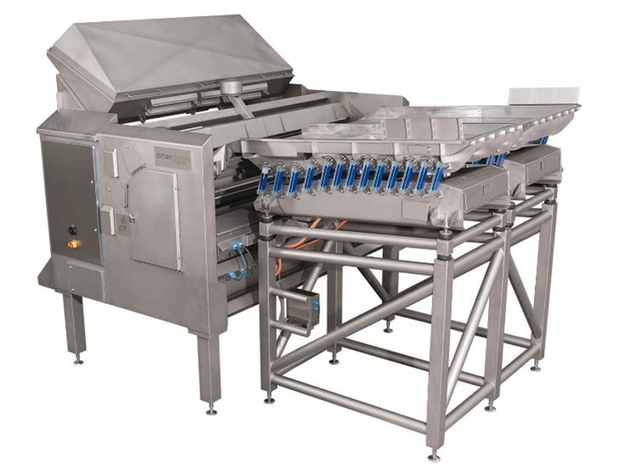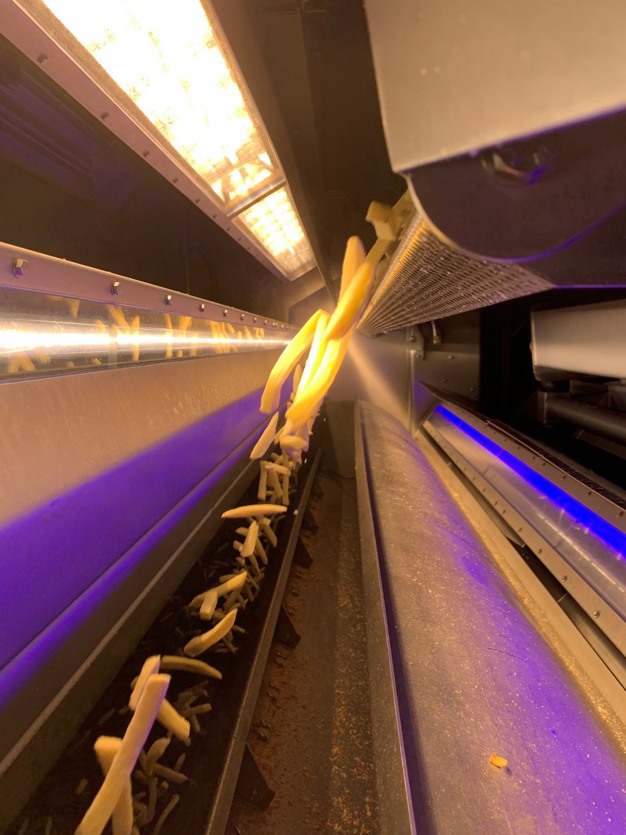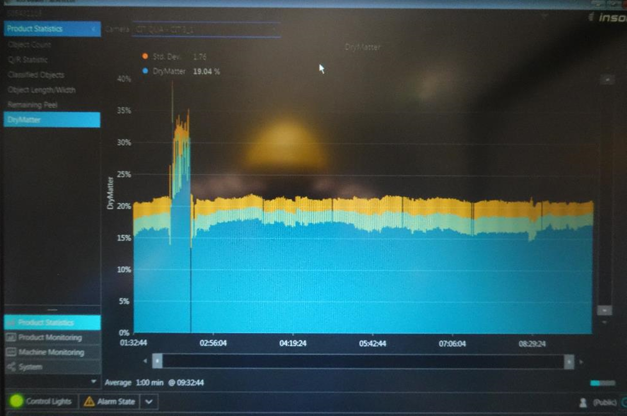Being contrary. Doing things differently. Or, more nicely put, swimming against the current. That can sometimes pay off. And it does, says Kees Kelders of Insort. "To remove foreign matter when grading potatoes and French fries, we completely reversed the sorting principle. Unlike others, we teach the software what a good potato or fry, not an unwanted object, is," he says.
 Sherlock Hybrid
Sherlock Hybrid
The Dutch company's new fresh French fries sorting machine integrates the idea of using a different grading approach. Unlike traditional methods, where software learns what foreign objects are, Insort's technology learns what makes a good potato or fry. This reverse principle means all abnormal material is automatically removed.
Focus on food safety
To do that, Insort uses hyperspectral technology via the sorter's CIT camera, which detects wavelengths 700 to 1.700 nanometers in the infrared spectrum. This technology, originating in laboratories, is now being applied in line at high speeds of two to three meters per second and with masses of 80-90 tons per hour. The goal is food safety, with the graders removing not only foreign objects but also defects such as black spots.
 Sorting of french fries
Sorting of french fries
Under Sherlock's scrutiny
Though pricey, this hyperspectral technology offers unmatched accuracy. The system is cost-effective in the long run because it has less wear and tear than lasers, which often require additional maintenance. Insort's sorters, including the Sherlock series, are designed with specific features for grading potatoes and French fries. The Sherlock Separator removes foreign objects and defective potatoes, while the Sherlock Food Analyzer analyzes internal properties like dry matter content. The Sherlock Hybrid targets pre-fried French fries, and a new machine for sorting fresh fry fingers will be presented at Interpom in late November.
 Dry matter production chart
Dry matter production chart
Lively French fries market
Insort has already delivered some 170 machines in the Benelux, and there is a rising demand for their technology, especially in Germany and the U.S. The French fries market is being re-energized, with new, more energy-efficient technologies replacing old machines. Potato processors are investing in the latest technology to stay competitive, especially given the expected potato shortage and changing worker skills. Now, operators look at screens and numbers, with sensors increasingly taking over experienced workers' roles.
 Kees Kelders
Kees Kelders
Insort
T: +31 (0)6 317 63 776
kees.kelders@insort.at
www.insort.at
